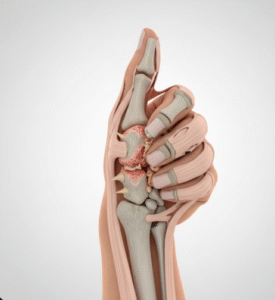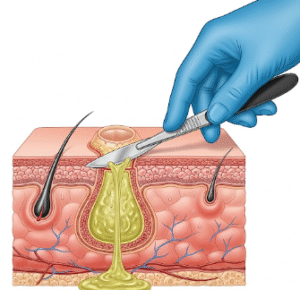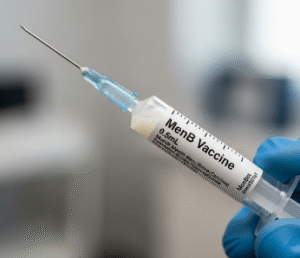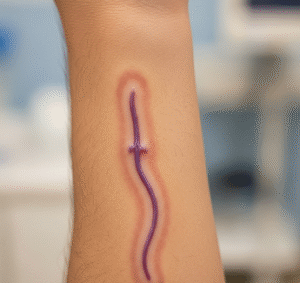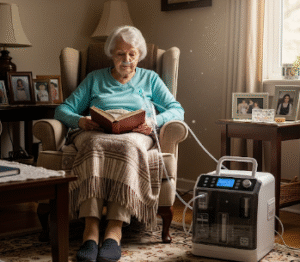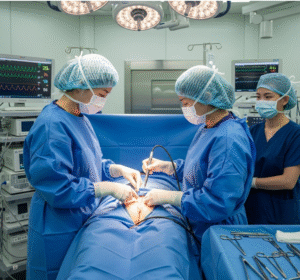Overview
Acid reflux in babies is a common condition where stomach contents, including milk or formula, flow back into the esophagus. This happens because the muscle that controls the opening between the stomach and esophagus (the lower esophageal sphincter) is not fully developed in infants. While occasional spitting up is normal, frequent or severe reflux can cause discomfort and affect a baby’s feeding and growth.
In most cases, reflux improves as babies grow older and the digestive system matures. However, persistent or severe symptoms may signal gastroesophageal reflux disease (GERD), which requires medical attention.
South Korea offers advanced pediatric healthcare, with specialized neonatal and pediatric gastroenterology centers that provide accurate diagnosis and effective treatments for acid reflux in babies.
Key Facts
Highlights:
➡️ Acid reflux is common in infants, especially during the first year of life.
➡️ It occurs because the digestive system is still developing.
➡️ Frequent spitting up alone is often harmless, but severe symptoms may indicate GERD.
➡️ Most babies outgrow reflux by 12–18 months of age.
➡️ Korea offers advanced pediatric gastroenterology care with specialized treatment plans.
What is Acid Reflux in Babies?
Acid reflux in babies is the backward flow of stomach contents into the esophagus. Parents usually notice frequent spitting up, irritability during feeding, or arching of the back. Unlike normal spit-ups, reflux that is excessive or associated with poor weight gain, feeding difficulties, or respiratory symptoms may require medical evaluation.
What Symptoms are Related to Acid Reflux in Babies?
Symptoms can vary in severity. Common signs include:
- Frequent spitting up or vomiting
- Irritability or crying during feeding
- Arching the back or stiffening during meals
- Coughing or wheezing
- Poor weight gain or difficulty feeding
- Refusal to eat or feed only small amounts
- Bad breath or sour taste
- Sleep disturbances due to discomfort
What Causes / Possible Causes of Acid Reflux in Babies?
Highlights:
➡️ Immature Digestive System: The esophageal sphincter is weak in infants and may not close properly.
➡️ Overfeeding: Large feeding volumes can increase pressure on the stomach.
➡️ Positioning: Lying flat after feeding makes reflux more likely.
➡️ Food Sensitivities: Reactions to formula or foods in the mother’s diet (for breastfeeding infants).
➡️ Prematurity: Premature babies have less developed digestive systems.
➡️ Underlying Medical Conditions: Such as hiatal hernia, neurological issues, or gastrointestinal abnormalities (rare).
When Should I See My Doctor?
Highlights:
➡️ If the baby vomits frequently and forcefully (projectile vomiting).
➡️ If there is blood in vomit or stool.
➡️ If the baby refuses feeds or eats very little.
➡️ If poor weight gain or weight loss is noticed.
➡️ If breathing difficulties, persistent cough, or wheezing occur.
➡️ If reflux continues beyond 18 months or worsens over time.
Care and Treatment
For most babies, reflux is mild and improves with simple home care. Parents can manage symptoms with the following strategies:
Highlights:
➡️ Feeding Adjustments: Smaller, more frequent feedings can help reduce reflux.
➡️ Burping Frequently: Pausing to burp during and after feeding helps release stomach gas.
➡️ Positioning: Keeping the baby upright for 20–30 minutes after feeding reduces backflow.
➡️ Thickened Feeds: Some pediatricians may recommend thickening formula (with rice cereal or medical thickeners).
➡️ Maternal Diet Changes: For breastfeeding infants, mothers may need to eliminate foods that worsen reflux.
➡️ Lifestyle Care: Avoid tight diapers or clothing that put pressure on the baby’s stomach.
➡️ Medications: In severe GERD cases, doctors may prescribe acid-suppressing medications (rare and only if necessary).
➡️ Surgery (Nissen Fundoplication): Reserved for very rare, severe cases when all other treatments fail.
Treatment Options in Korea
South Korea is highly advanced in pediatric and neonatal medicine. Babies with reflux can access specialized care in leading hospitals and children’s centers.
Highlights:
➡️ Accurate Diagnostics: Korea offers pediatric endoscopy, pH monitoring, and imaging studies to confirm GERD.
➡️ Individualized Feeding Programs: Dietitians work with parents to design reflux-friendly feeding schedules.
➡️ Advanced Medications: Safe, pediatric-appropriate acid-reducing medications are prescribed only when necessary.
➡️ Multidisciplinary Care: Pediatricians, gastroenterologists, and dietitians collaborate for holistic treatment.
➡️ Minimally Invasive Surgery: Rare but available in top children’s hospitals for severe reflux complications.
➡️ Medical Tourism Support: Korea provides baby-friendly facilities, interpreter services, and affordable packages for international families.





